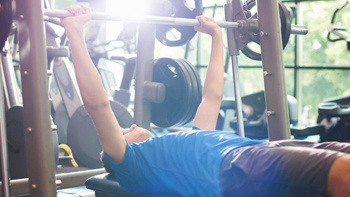London, Apr 10: Fitness enthusiasts, take note! Exercising on an empty stomach may help burn more body fat and fuel your metabolism, boosting your health in the long run, a new study has found.
 Researchers from University of Bath in the UK studied a group of overweight males.
Researchers from University of Bath in the UK studied a group of overweight males.
The volunteers walked for 60 minutes at 60 per cent maximum oxygen consumption on an empty stomach, and on another occasion for two hours after consuming a high-calorie carbohydrate-rich breakfast.
The team took multiple blood samples after eating or fasting and after exercising. They also collected adipose tissue samples immediately before and one hour after walking.
Gene expression in the adipose tissue differed significantly in the two trials, researchers said.
They found that the expression of two genes, PDK4 and HSL, increased when the men fasted and exercised, and decreased when they ate before exercising.
The rise in PDK4 likely indicates that stored fat was used to fuel metabolism during exercise instead of carbohydrates from the recent meal, researchers said.
HSL typically increases when adipose tissue uses stored energy to support increased activity, such as during exercise, said Dylan Thompson of University of Bath.
These results reinforce the view that "adipose tissue often faces competing challenges," Thompson said.
After eating, adipose tissue is busy responding to the meal and a bout of exercise at this time will not stimulate the same beneficial changes in adipose tissue, he said.
This means that exercise in an empty stomach might provoke more favourable changes in adipose tissue, and this could be beneficial for health in the long term, he added.
The study was published in the American Journal of Physiology-Endocrinology and Metabolism.




Comments
Add new comment